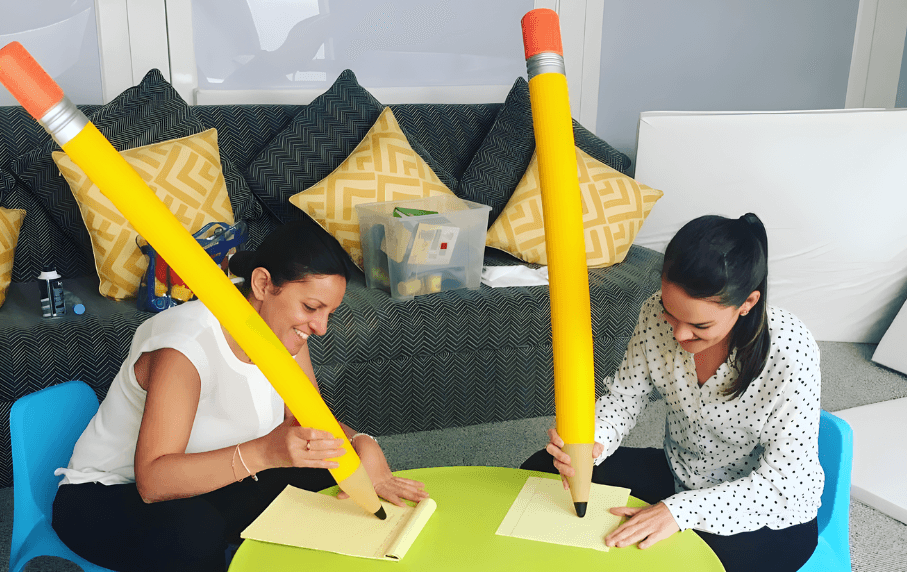
Shakespeare and I have been friends for many years. We first became friends when I was seven and since then we’ve always been friends. My dearest teacher Mrs Tipping introduced me to him, as well as to other great literary artists such as Gerard Manley Hopkins, Eleanor Farjeon, and Wordsworth. I owe a great deal to Mrs Tipping. My passion for the theatre, the joy I get from teaching and my love of reading. She was my teacher for 11 years, from prep school through to my first year at UCL, which is when she passed at the age of 85.
I used to see her once a week at school and from the age of 11, I would have my lesson every Thursday after school in her sweet cottage in Chigwell Row. She would drink her tea and we would sit by the fire in huge comfy armchairs. She was the wise loving grandma archetype although she didn’t have grandchildren of her own. She was a widower and her two adult sons lived with her. It never felt like a lesson or hard work, it was supposed to be an hour but it was always longer. The threshold to her cottage felt like stepping into another world. In many ways I was, I was entering the magical literary world. This is where I learned who the great poet laureates were, how to act, how to recite verse (poetry) and how to public speak. It was because of her that I would get excited about visiting the Bronte Sisters home and Beatrix Potter. When I was considering what to do at university she had suggested becoming a Speech and Language Therapist. And she was right that is just what I went on to do.
Mrs Ann Tipping was an exceptional teacher. She inspired me and taught me the joy and pleasure gained from playfulness and teaching. My summer trips to watch a mid-summer nights dream in Regents Park were never tireless and if possible I still love to go. Each visit to the theatre I think of her. I treasure the books she gave me, which have been my companions and have travelled all over the world with me. When I used to teach at Hunter I would ask my graduate students “What are the qualities of an exceptional teacher?” And not surprisingly answers included someone who cares, who inspires, who is passionate, who understands pedagogy but puts it into practice, who has a big heart, who is creative. That summed up Mrs Tipping.
Using Plays to Support Language Development in Children with ASD
Today I pulled out a book Mrs Tipping had given me when I was seven years old, “Seven Little Plays for Children by Rose Fyleman”, first published in 1928. One of the plays is called “The Arm-chair”. It was a play we had read together.
Fairy: Anybody there! You’re here armchair. Why didn’t you answer?
Arm-chair: I didn’t know it was you, for certain.
Fairy: Well, you know I always pay a round of visits on Midsummer day. Aren’t you pleased to see me?
Arm-chair: Of course I am- of course I am. Take a seat, wont you?
Looking through the little book I thought of my therapy sessions with little ones with ASD. One of the children I work with who has ASD calls me Stanley (he has called me many names over the years but this is my current name), having read the story Bright Stanley more than 100 times we now act it out. We pretend to be the characters and go off on an adventure to find a Sea Dragon who may be hiding in a cave. He now uses the story with his peers and other teachers during his pretend play. It has been a wonderful tool!
Thank you Mrs Tipping.